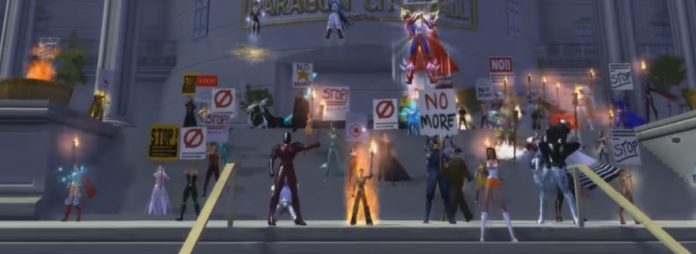
Unionization pushes have become a big discussion across the games industry for the last several years. The tipping point might just have been the Screen Actors Guild strike in 2016 and 2017, when voice actors issued a dramatic strike against game companies to secure better pay and working conditions, during which, you’ll be unsurprised to learn, the group representing the corporations behaved abysmally. By 2018, game developers across the industry had formed Game Workers Unite, a group pushing industry teams to unionize and now has multiple chapters around the world. Within a year, half of developers surveyed at GDC supported the movement. Most recently, even politicians have lent their voice to the unionization push for workers in the games sector; this past summer, US Senator and Democratic presidential candidate Bernie Sanders tweeted in praise of Game Workers Unite specifically.
All of this is preamble to the most recent development: The largest communications/media labor union in the US has now stepped into the ring. The Communications Workers of America (CWA) this week announced a formal Campaign to Organize Digital Employees, characterized as a “new initiative to support workers’ organizing efforts in the technology and game industries” and led in part by one of the founders of GWU.
“Employees at major American tech and game companies have grown increasingly active and outspoken about workplace issues, including sexual assault and harassment, ageism, unequal pay, ‘crunch time’ (i.e. long-term overtime and overworking), poor treatment of contract workers, inadequate racial and gender diversity, and lack of transparency and inclusion in decision-making around controversial contracts with the U.S. Department of Defense and Immigration and Customs Enforcement (ICE). […] Tech and game companies’ meteoric growth in recent years has been accompanied by growing concerns around workers’ rights and workplace conditions, including the disconnect between the companies’ stated values and the societal impact of the technology. CODE-CWA will provide resources for workers who are joining together to demand change.”
Gamers will note here that CWA is in good company: A year ago, when Activision-Blizzard’s Bobby Kotick announced the company would be following up a year of record profits by slashing 800 jobs, the US’s largest labor union, AFL-CIO, penned an open letter urging game developers to unionize.
“While you’re putting in crunch time, your bosses are ringing the opening bell on Wall Street,” the group wrote. “While you’re creating some of the most groundbreaking products of our time, they’re pocketing billions. While you’re fighting through exhaustion and putting your soul into a game, Bobby Kotick and Andrew Wilson are toasting to ‘their’ success. They get rich. They get notoriety. They get to be crowned visionaries and regarded as pioneers. What do you get? Outrageous hours and inadequate paychecks. Stressful, toxic work conditions that push you to your physical and mental limits. The fear that asking for better means risking your dream job.”
The trend on this seems pretty clear.














